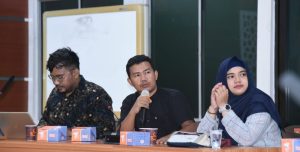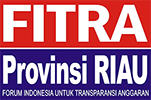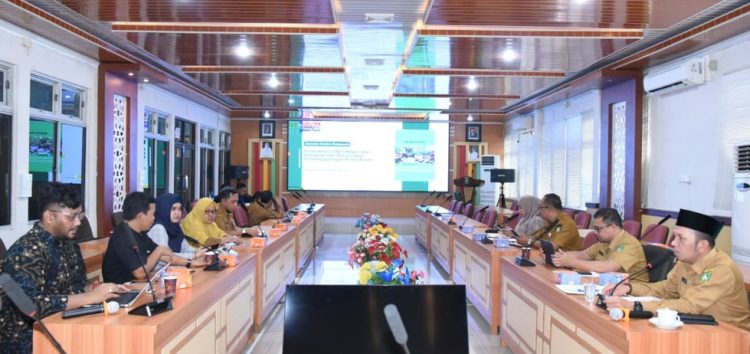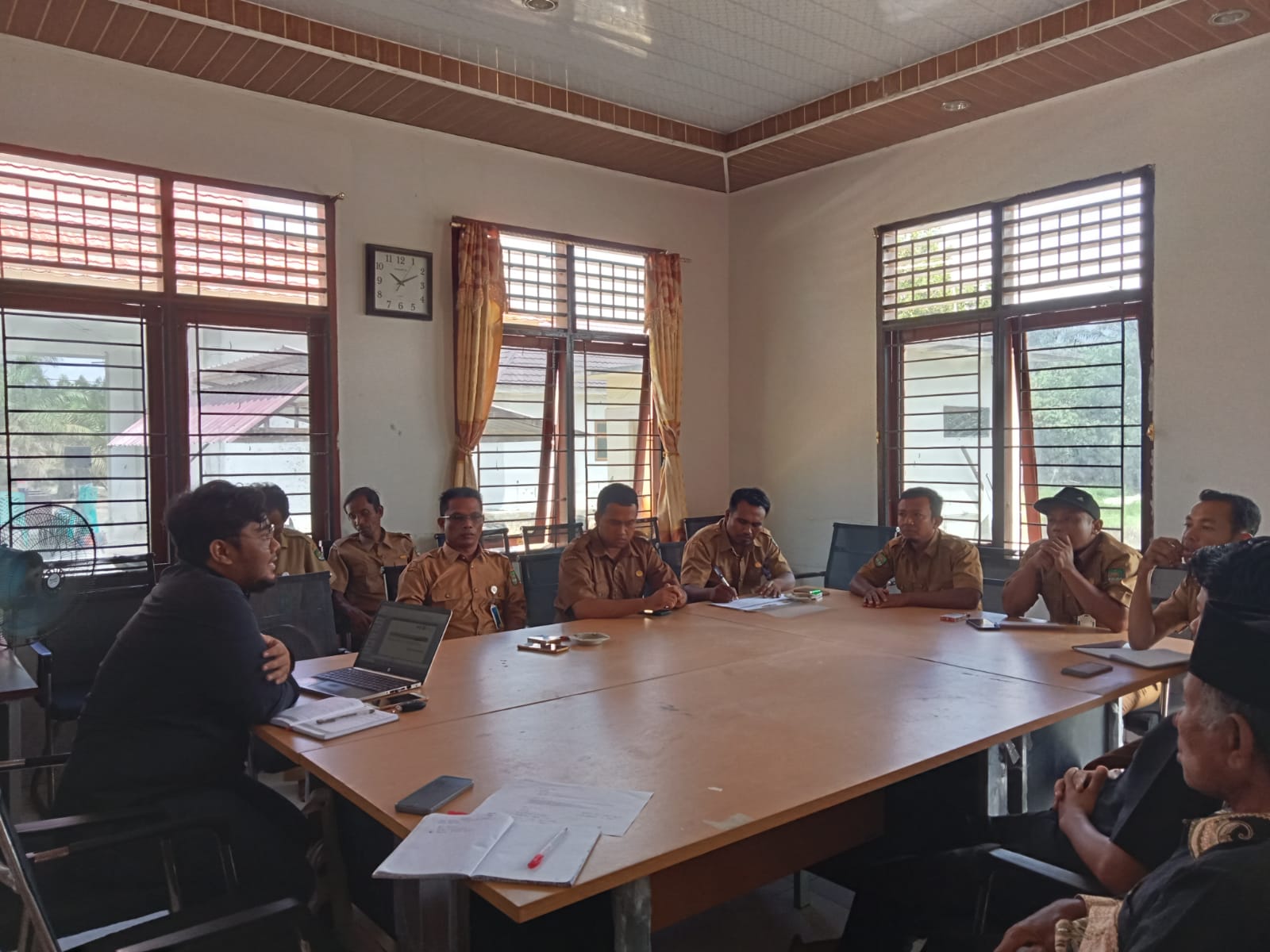FR2023_ The Bengkalis District Government, in this case, strongly agrees and is in line with FITRA’s efforts to drive the strategy for alleviating extreme poverty in villages that are oil and gas producing areas. This was conveyed by the Head of the Regional Development Planning Agency (Bappeda), Rinto, during a joint FGD with FITRA Riau on Tuesday, May 20, 2023.
Apart from Bappeda, present at the meeting were: the Department of Social Affairs, Department of Village Community Empowerment, Regional Financial and Asset Management Agency, Department of Communication and Information, Department of Cooperatives and SMEs, and the Regional Secretariat.

In FITRA’s presentation, Tarmidzi explained that the urgency of implementing the redistribution of Oil and Gas Royalties (DBH Migas) to villages is aimed at poverty alleviation in oil and gas producing regions. This is because the oil-rich areas, which currently support development, have not specifically addressed the operational areas of oil and gas production.
The condition of the villages monitored by FITRA shows that there is still a lack of impact, with inadequate access to basic social services, infrastructure, and minimal economic empowerment for communities around oil and gas sites.
Therefore, he stated, government commitment to the policy of redistributing the District’s Oil and Gas Royalties to villages is crucial to enhancing village development and the welfare of communities around oil and gas sites.
The mechanisms we propose come in two schemes: The first scheme provides special financial assistance from the District to the villages with specific criteria designated for special (affected) areas. This involves reformulating the existing Special Financial Assistance (BKK) and allocating it for specific needs.
The second scheme involves reformulating the Village Fund Allocation (ADD) based on oil and gas revenues. This scheme adds a distribution formula, taking 10 percent of the received Oil and Gas Royalties and distributing it specifically to villages based on their impact status. This scheme is aimed at supporting health, education, and poverty alleviation services,” said FITRA’s Deputy.
Based on this presentation, Bappeda welcomes FITRA’s push and ideas for a thorough examination. Rinto stated that this effort serves as a proposal for regional innovation in poverty alleviation.
He further explained, “There are two possibilities and strategies that we can reformulate based on FITRA’s proposal. We can use the Village Fund Allocation (ADD) or we can reformulate the 1 billion IDR Special Financial Assistance (BKK). However, I lean more towards and agree to reformulate the 1 billion IDR BKK in January next year, 2024.
Continuing, if we use the ADD, it’s very challenging and the opportunity is quite narrow. There are posts that need to be reduced. Let’s plan everything in January 2024, including the technical details, scheme, and directions for utilization, along with assisting us in evaluating the impact of the 1 billion IDR BKK. This way, the opportunity for the BKK next year to support poverty alleviation programs in villages producing oil and gas can be realized through the BKK program in 2025,” expressed the Head of Bappeda.
What was conveyed by Bappeda is very much in line with what was expressed by the Department of Community Empowerment (Dinas PMD), stating their strong agreement that the utilization of the 1 billion IDR Special Financial Assistance (BKK) should be prioritized for poverty alleviation programs rather than reformulating the Village Fund Allocation (ADD).
Basma revealed that the current allocation of village funds is divided into three parts: the basic allocation, proportional allocation, and performance-based allocation. If ADD were to be reformulated for another variable, it would actually impact the villages negatively as it would lead to reduced funding for program activities and village officials’ salaries.
Looking at the data from the 136 existing villages, there are very few oil and gas producing villages compared to those that are not. Therefore, according to the Department of Community Empowerment, even if the government were to continue using the ADD scheme as an option, it would only be feasible for 1 or 2 percent at most. This is especially the case for independent villages where the ADD allocation is already percentage-based,” Functional Officer of Dinas PMD stated.
There are two choices as strategies, and if the alternative is to use the BKK scheme as an option to be implemented in Bengkalis District, then this becomes an opportunity for the region to pursue. Taufik said that from the discussions, a conclusion has been reached that the Bengkalis District Government is highly committed to redistributing Oil and Gas Royalties by reformulating the 1 billion IDR BKK.
“What was conveyed by Bappeda is very much in line with what was expressed by the Department of Community Empowerment (Dinas PMD), stating their strong agreement that the utilization of the 1 billion IDR Special Financial Assistance (BKK) should be prioritized for poverty alleviation programs rather than reformulating the Village Fund Allocation (ADD).
Basma revealed that the current allocation of village funds is divided into three parts: the basic allocation, proportional allocation, and performance-based allocation. If ADD were to be reformulated for another variable, it would actually impact the villages negatively as it would lead to reduced funding for program activities and village officials’ salaries.
Looking at the data from the 136 existing villages, there are very few oil and gas producing villages compared to those that are not. Therefore, according to the Department of Community Empowerment, even if the government were to continue using the ADD scheme as an option, it would only be feasible for 1 or 2 percent at most. This is especially the case for independent villages where the ADD allocation is already percentage-based,” Functional Officer of Dinas PMD stated.
There are two choices as strategies, and if the alternative is to use the BKK scheme as an option to be implemented in Bengkalis District, then this becomes an opportunity for the region to pursue. Taufik said that from the discussions, a conclusion has been reached that the Bengkalis District Government is highly committed to redistributing Oil and Gas Royalties by reformulating the 1 billion IDR BKK.
In line with the conclusions drawn from the discussion, the allocation of 1 billion IDR in BKK for poverty alleviation can be implemented for the following year, 2025. Additionally, it is recommended to reassess and map the producing and non-producing villages, taking into account their potential and poverty conditions. This is because the current data is preliminary and does not yet fully depict the true conditions and potential of the villages,” the facilitator concluded.**TF
Penulis Taufik














